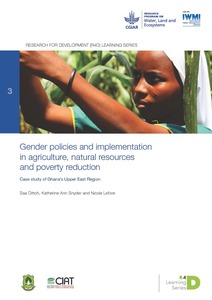Location
The International Water Management Institute (IWMI) is a non-profit, scientific research organization focusing on the sustainable use of water and land resources in developing countries. It is headquartered in Colombo, Sri Lanka, with regional offices across Asia and Africa. IWMI works in partnership with governments, civil society and the private sector to develop scalable agricultural water management solutions that have a real impact on poverty reduction, food security and ecosystem health. IWMI is a member of CGIAR, a global research partnership for a food-secure future.
IWMI’s Mission is to provide evidence-based solutions to sustainably manage water and land resources for food security, people’s livelihoods and the environment.
IWMI’s Vision, as reflected in the Strategy 2014-2018, is ‘a water-secure world’. IWMI targets water and land management challenges faced by poor communities in the developing countries, and through this contributes towards the achievement of the United Nations Millennium Development Goals (MDGs) of reducing poverty and hunger, and maintaining a sustainable environment. These are also the goals of CGIAR.
IWMI works through collaborative research with many partners in the North and South, and targets policymakers, development agencies, individual farmers and private sector organizations.
Resources
Displaying 126 - 130 of 959Earth observation technologies for flood-risk mapping and forecast rating curve for flood recession agriculture in Nigeria. Training manual prepared for Capacity building workshop on Earth Observation Technologies for Flood-risk mapping and Forecast ra...
Evaluation des ressources en eau du bassin de la Volta. In French
Le projet « WISE UP to climate » vise a demontrer l'utilite des infrastructures naturelles comme une « solution basee sur la nature » pour l'adaptation au changement climatique et le developpement durable. Dans le bassin de la Volta, les infrastructures naturelles, comme les construites, offrent des benefices pour la subsistance des personnes. Comprendre les interrelations entre ces deux types d'infrastructures est une condition indispensable a une gestion et un developpement durables des ressources en eau.






